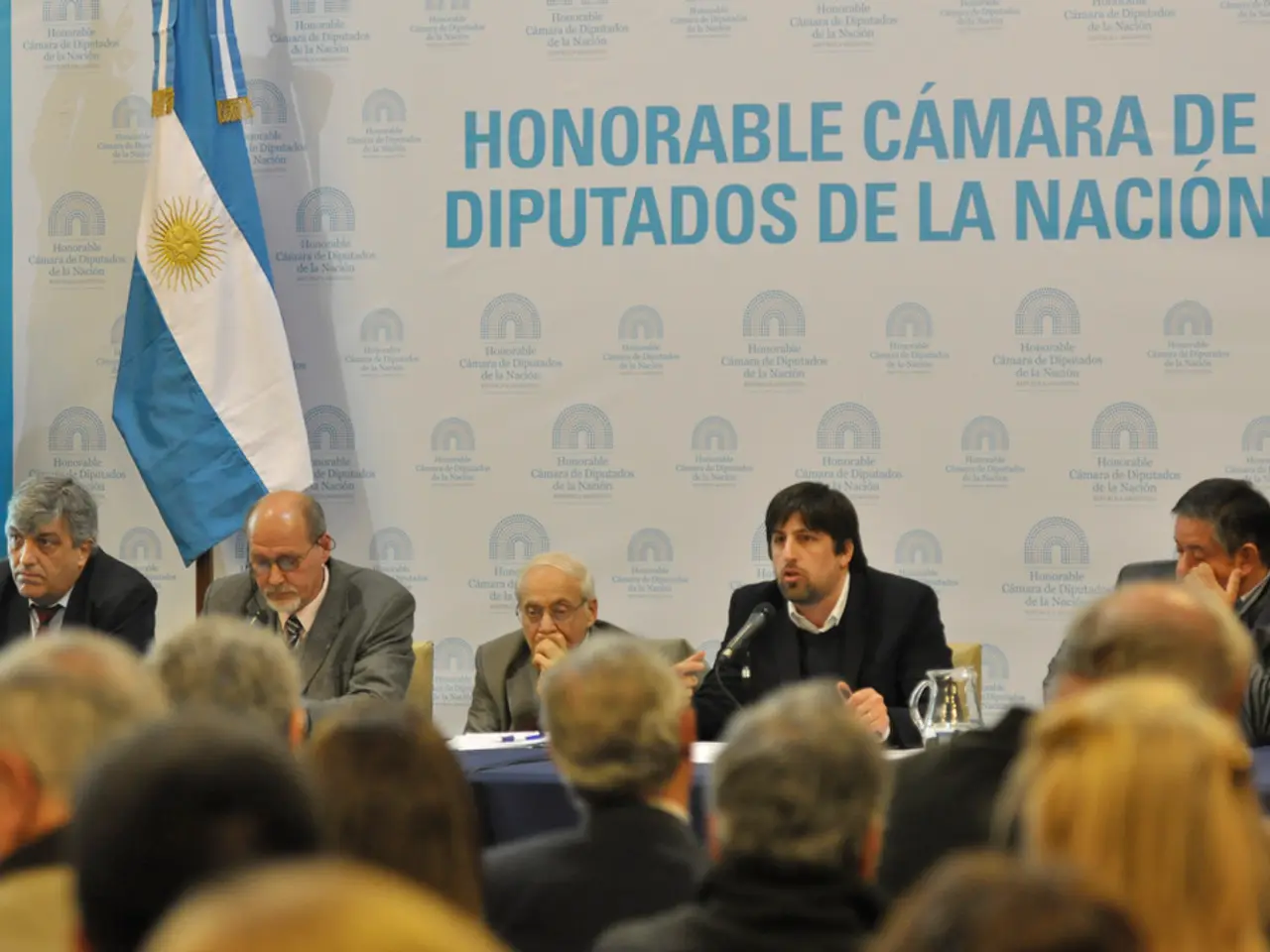Pipelinecompany obtains $660 million judgment against environmental group Greenpeace in North Dakota court
Battle Cry: Greenpeace Vows to Continue Fight After Massive Pipeline Verdict
In a bold statement, Sushma Raman, interim executive director of Greenpeace, declared, "This is the end of a chapter, but not the end of our fight." A North Dakota jury has ordered Greenpeace to pay $660 million to oil-and-gas pipeline giant Energy Transfer, but Greenpeace seems unbowed.
The Mega-Verdict and the Energy Transfer Lawsuit
The lawsuit against Greenpeace by Energy Transfer LP is a fallout from the 2016-2017 protests against the Dakota Access Pipeline (DAPL). Energy Transfer, DAPL's parent company, accused Greenpeace entities of various offenses including trespass, conversion, nuisance, conspiracy, defamation, and tortious interference with business. The jury's verdict culminated in Greenpeace entities being ordered to pay close to $667 million in damages [1][2][3].
Controversy: SLAPP Suit Allegations
Critics have characterized the lawsuit as a Strategic Lawsuit Against Public Participation (SLAPP), a tactic designed to silence dissent against corporate activities. If successful, such lawsuits can burden protesters and activists with legal costs [3][4].
The Financial Impact
The verdict carries severe financial consequences for Greenpeace, potentially forcing its U.S. arm to shut down. Greenpeace Inc. was ordered to pay $404 million, while Greenpeace Fund Inc. and Greenpeace International are jointly responsible for $131 million [2][4].
Looking Forward: Appeal and Global Response
Undeterred, Greenpeace has declared its intention to appeal the verdict to the North Dakota Supreme Court and is also pursuing legal action against Energy Transfer in the Netherlands under the EU's anti-SLAPP directive [1][3]. The case has sparked a global response, with many viewing it as a litmus test for the legal system's ability to protect free speech and peaceful protest[3][4].
The future of social movements and environmental activism may hinge on the outcome of this case. If the verdict is upheld, it could limit the ability of groups to challenge corporate activities through nonviolent protests, potentially emboldening corporations to use similar legal tactics against activists [4]. Let the fight continue!
The verdict in the Energy Transfer lawsuit against Greenpeace, stemming from the protests against the Dakota Access Pipeline, has sparked political debates about the use of Strategic Lawsuits Against Public Participation (SLAPP) in the realm of environmental law and general-news reporting, as critics argue it could be used to silence dissent. Meanwhile, Greenpeace vows to appeal the ruling and continues its fight, seeking justice not only in North Dakota but also through international legalactions in the Netherlands, aiming to preserve the right to peaceful protest and free speech.





